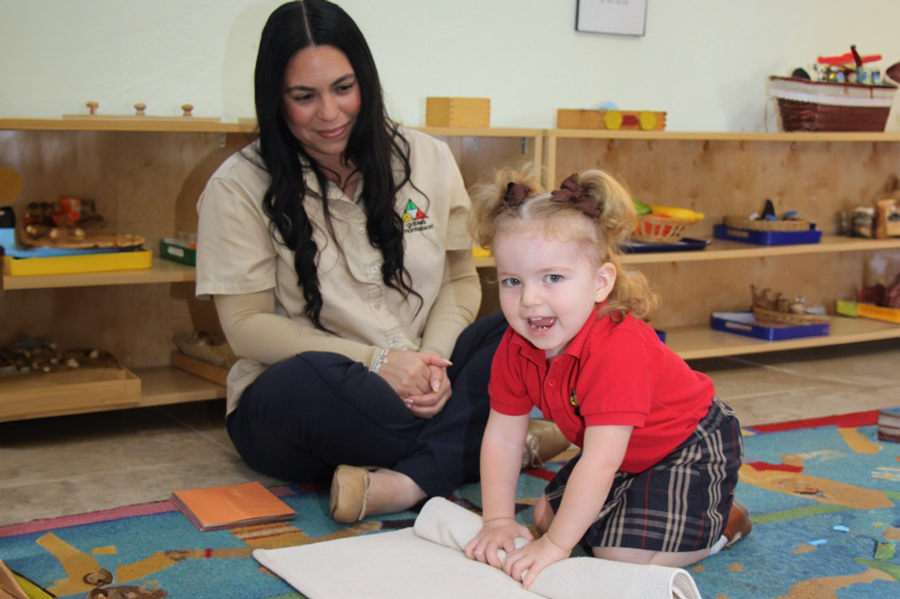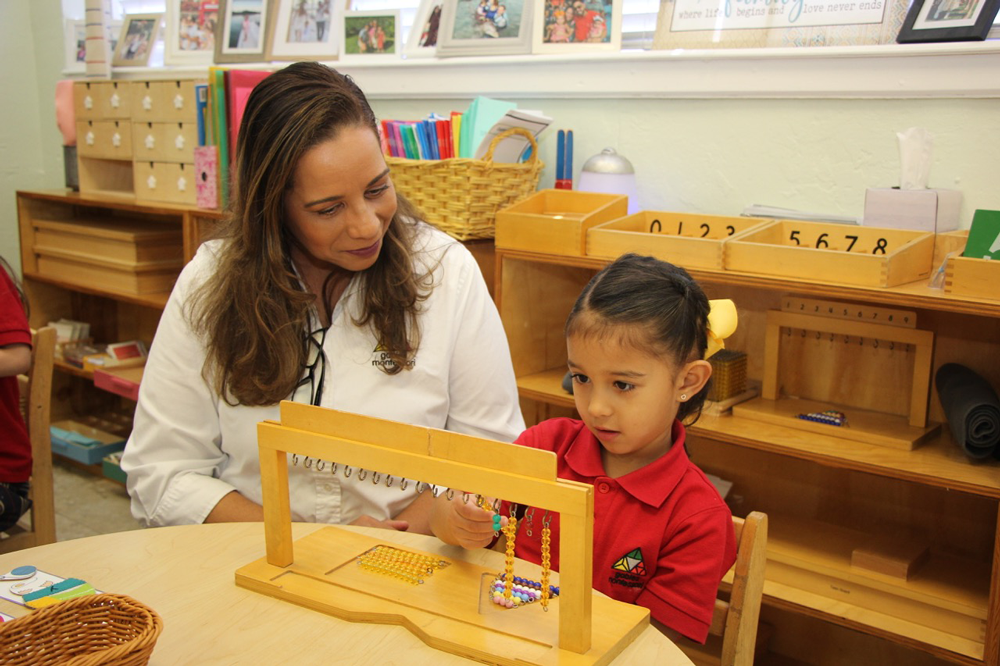Toddler Curriculum
The toddler curriculum embraces children’s natural curiosity, love of movement, and eagerness to contribute. It is thoughtfully designed around four key areas: Practical Life, Fine and Gross Motor Development, Language, and Art and Music—each supporting the toddler’s growing independence, coordination, and joyful exploration.

Practical Life
Practical Life
In the Toddler Program, children are immersed in hands-on activities like mopping, sweeping, watering plants, cleaning, and food preparation—all of which foster a strong sense of community and responsibility. The program places special emphasis on building functional independence through everyday life skills such as dressing, undressing, handwashing, and self-feeding. Families also receive gentle guidance and support throughout the toilet learning process.
Language
Language
The Language Area offers toddlers rich opportunities to develop their communication skills through songs, poems, storytelling, and daily conversations. To build vocabulary meaningfully, children engage with real, hands-on materials—connecting words to sensory experiences. For example, a basket of real vegetables might invite them to explore and compare the weight, texture, smell, and color of a sweet potato, a head of cabbage, and a carrot—turning everyday objects into powerful learning tools.
Fine & Gross-Motor
Fine & Gross-Motor
The materials in the Toddler Program are thoughtfully designed to support physical development. Activities like bead stringing and puzzles enhance hand-eye coordination, while painting and cutting with scissors help refine fine motor skills. Gross motor development is encouraged through specific lessons such as balancing on a beam or hopping on one foot, helping children build strength, coordination, and confidence.
Art & Music
Art & Music
Children explore art through a variety of creative mediums, including crayons, collage, watercolor, and easel painting. Stories about the artwork displayed in the classroom help introduce the foundations of art appreciation. Music is also woven into their daily experience, with singing, dancing, and listening activities fostering a joyful connection to rhythm and sound.
Primary Curriculum
Children are introduced to a wide range of concepts through individualized and small-group lessons, allowing for personalized learning experiences. The classroom is thoughtfully prepared with Montessori materials across five core areas: Practical Life, Sensorial, Language, Math, and Cultural Studies—each designed to support hands-on exploration and deep understanding.

Practical Life
Practical Life
Practical Life materials help children develop essential skills for caring for themselves and their environment. Activities such as buttoning, cutting vegetables, watering plants, and sweeping up spills promote responsibility and independence. While these tasks serve real-life purposes, they also lay the groundwork for emerging executive function skills by encouraging focus, coordination, and purposeful movement.
Language
Language
The Montessori approach nurtures the natural joy children find in language. Through stories, poetry, songs, and rich conversations, children develop their ability to express themselves with confidence and creativity. Building on this strong foundation, they progress through a carefully designed sequence of Montessori materials that support the development of both writing and reading skills.
Sensorial
Sensorial
Children naturally explore and understand the world through their senses. The Sensorial area helps them make sense of these experiences by offering materials that isolate specific qualities—such as color, shape, size, texture, and weight. Through hands-on exploration, children develop keen observation and comparison skills, laying a strong foundation for future learning in language, math, and beyond.
Cultural Studies
Cultural Studies
Cultural extension materials introduce children to a broad range of subjects that deepen their understanding of the world. Art and music are woven into daily classroom life, while biology comes alive through hands-on exploration of plant and animal life cycles and basic classifications. Geography and cultural studies are explored through continent maps, storytelling, and meaningful contributions from parents. Children also gain an appreciation for diversity as they learn about the various backgrounds, religions, and countries of origin represented in their own community.
Math
Math
Through independent problem-solving in Practical Life and thoughtful exploration with Sensorial materials, children begin engaging with mathematical thinking from an early age. The Montessori math curriculum introduces foundational concepts—such as numbers 1–10, the concept of zero, and the decimal system—as well as advanced ideas like the four operations (addition, subtraction, multiplication, and division). These hands-on materials make abstract concepts concrete, allowing young children to grasp and enjoy advanced math at a pace that feels natural and empowering.